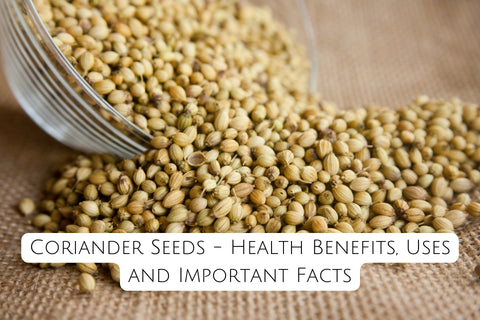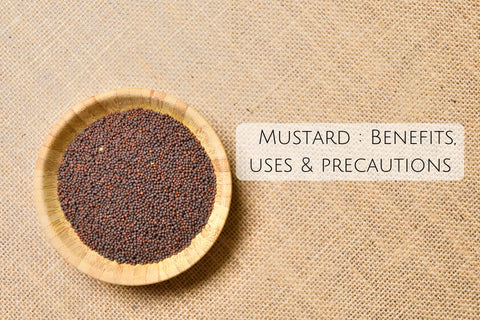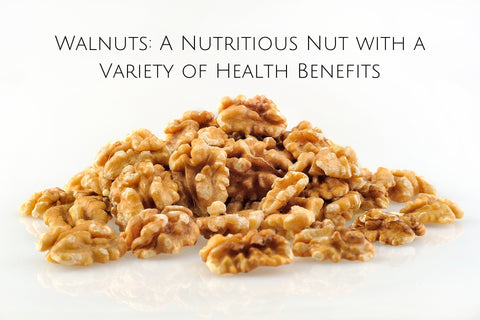Coriander seeds, scientifically known as Coriandrum sativum, are the dried seeds of the coriander plant. This plant belongs to the Apiaceae family and is cultivated for its aromatic and flavorful seeds, which are used as a spice in cooking and various culinary applications. The scientific name "Coriandrum sativum" encompasses both the plant itself and its seeds.
Health Benefits of Coriander Seeds
Coriander seeds have been used for centuries in traditional medicine systems, and they are believed to offer various potential health benefits. While more research is needed to fully understand and confirm these benefits, here are some of the potential health benefits associated with coriander seeds:
Digestive Aid:
Coriander seeds are known for their digestive properties. They may help alleviate symptoms of indigestion, bloating, and gas. They can be chewed or consumed as a tea to aid digestion.It is sometimes used as a natural remedy for these issues.
Antioxidant Properties:
Coriander seeds contain antioxidants, including flavonoids, which may help combat oxidative stress and reduce the risk of chronic diseases.
Anti-Inflammatory Effects:
Some studies suggest that coriander seeds may have mild anti-inflammatory properties, which could be beneficial in managing conditions related to inflammation.
Cholesterol Management:
There is evidence to suggest that coriander seeds may help lower levels of LDL (bad) cholesterol and triglycerides in the blood, potentially reducing the risk of heart disease.
Blood Sugar Regulation:
Coriander seeds may help regulate blood sugar levels, which can be beneficial for people with diabetes or those at risk of developing the condition. They may help improve insulin sensitivity.
Pain Relief:
In traditional medicine, coriander seeds have been used to alleviate pain, including headaches and menstrual cramps.
Uses of coriander powder
Coriander powder, also known as ground coriander or coriander spice, is a versatile and widely used spice in culinary applications. Dried coriander seeds are ground into a fine powder to make it. Coriander powder has a mild, slightly citrusy, and earthy flavor that adds depth and aroma to dishes. Here are some common uses of coriander powder in cooking:
Curries:
Coriander powder is a key ingredient in many Indian, Thai, and Middle Eastern curry recipes. It adds flavor and helps create a rich, aromatic sauce base.
Spice Blends:
It is a fundamental component of various spice blends, including curry powder, garam masala, and ras el hanout.These blends find application in seasoning a broad spectrum of dishes.
Marinades:
Coriander powder can be used in marinades for meats, poultry, and seafood. It enhances the flavor and helps tenderize the protein.
Soups and Stews:
It is often added to soups, stews, and chili for added depth of flavor. Coriander powder works well in both vegetarian and non-vegetarian preparations.
Roasted Vegetables:
Sprinkle coriander powder over roasted vegetables like carrots, potatoes, or cauliflower for a unique flavor profile.
Rice and Grain Dishes:
Coriander powder can be added to rice, pilaf, or couscous dishes to infuse them with a mild, aromatic flavor.
Sauces and Salsas:
It can be used in various sauces, including tomato-based sauces, chutneys, and salsas, to enhance their flavor.
Pickles:
Coriander powder is a common ingredient in pickling spice mixes, adding a distinctive flavor to pickled vegetables.
Breads and Baked Goods:
Some bread and baked goods recipes, especially in Indian cuisine, call for coriander powder to add flavor and aroma to the dough.
Salad Dressings:
It can be incorporated into salad dressings to give salads an extra layer of flavor.
Snacks:
Coriander powder can be used to season snacks like roasted nuts, popcorn, or homemade potato chips.
Beverages:
In some cultures, coriander powder is used in beverages like teas and herbal infusions for its mild and refreshing flavor.
When using coriander powder, it's essential to store it in an airtight container in a cool, dark place to maintain its freshness. Additionally, consider toasting the powder briefly in a dry skillet before using it in recipes to enhance its flavor. The toasting process can intensify the spice's aroma and provide a richer taste to your dishes.
Important Facts:
Coriander (Coriandrum sativum) is a herb and spice with a long history of culinary and medicinal use. Here are some important facts about coriander:
Dual Use:
Coriander is unique in that both its leaves and seeds are edible and have different culinary applications. The leaves are known as cilantro, while the seeds are called coriander seeds.
Flavor Profile:
The flavor of coriander leaves (cilantro) is fresh, citrusy, and slightly herbaceous. Coriander seeds have a warm, earthy, and slightly nutty flavor with citrus undertones.
Spice and Herb:
Coriander is considered both a spice (in the form of seeds) and an herb (in the form of leaves). It's an essential ingredient in spice blends like curry powder and garam masala.
Nutritional Content:
Coriander is a good source of vitamins (including vitamin C and vitamin K), minerals (such as potassium and calcium), and dietary fiber. It's also relatively low in calories.
Antioxidant Properties:
Coriander contains antioxidants, including flavonoids and phenolic compounds, which may help combat free radicals and oxidative stress in the body.
Traditional Medicine:
In various traditional medicine systems, coriander has been used to treat digestive issues, inflammation, and as a remedy for various ailments.
Cultivation:
Coriander is an annual herb that grows best in moderate climates. It produces delicate white or pink flowers and is relatively easy to cultivate.
Cilantro vs Coriander:
The term "cilantro" typically refers to the fresh leaves of the coriander plant, while "coriander" refers to the dried seeds. They have distinct flavors and culinary uses.
Coriander is a versatile and widely used herb and spice that adds a unique and pleasant flavor to a variety of dishes. It is not only valued for its culinary contributions but also for its potential health benefits and traditional medicinal uses.




Comments (0)
There are no comments for this article. Be the first one to leave a message!